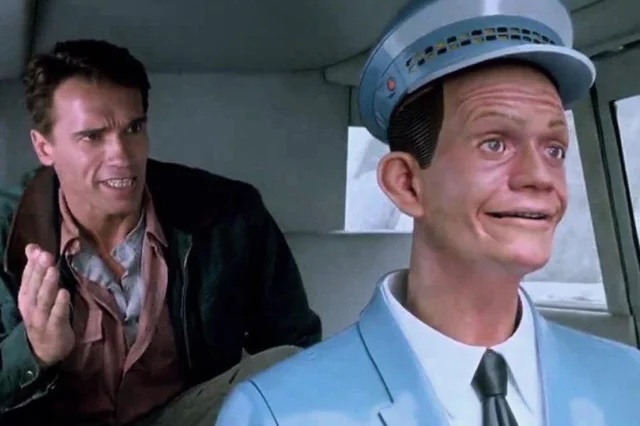You Wouldn't Download A Car
Years ago, I opined that self-driving cabs were not auto-makers’ friends:
The future of autonomous cars is not a Tesla in every driveway. It looks much more like Paris’ new driverless minibuses - in other words, the use case that we should extrapolate from is public transport, not private cars.
[…]
[Truly autonomous vehicles] will determine the end of the automotive industry as we know it. Already today, nobody cares especially about the marque of their Uber or Lyft vehicle. In a scenario where those are the only types of vehicles on the road, the basis of competition between manufacturers would change dramatically to become something much more similar to the commercial vehicle market. The relevant drivers for competition would become the cost of operation and maintenance, without any particular brand cachet or driver experience factoring into selection. The overall size of the market would also shrink dramatically, as increased utilisation rates for individual vehicles lead to a requirement for a much smaller number of vehicles overall. Whatever happens, the sales volume for the industry will crash and most of the current manufacturers will exit the market one way or another.
The linked article was written in the context of assuming Full-Self Driving would become a reality, which I am still far from convinced will happen — but if it does, it won’t be Tesla that delivers it. Instead, we have this story: China’s Baidu to bring its driverless cars to Uber globally:
- Baidu will deploy its Apollo Go autonomous vehicles on Uber outside the U.S. and mainland China.
- By partnering with Uber, Baidu has found a company with a widely-used app and that operates in 15,000 cities globally.
This development is exactly what I was describing above. While I remain sceptical that this tech can work in Rome, Istanbul, or Bangalore, I think there is a pretty good chance that it can perform somewhere like Dubai. If I’m standing in my hotel on the Creek and I summon an Uber, an anonymous driverless pod is actually a step up from being jammed into a Camry hip-to-hip with the rest of the account team — and I couldn’t care less what badge it has on the front. The wide, new, and well-planned roads of the Emirates are pretty much the best possible environment for self-driving technology — and any tricky bits can be geofenced off if necessary, at least for the initial roll-out.

The Uber-Baidu partnership is the opposite of Tesla’s idiotic “Cybercab” (I am getting douche chills just from typing that) — although in typical Musk fashion, the “Robotaxi” service is launching with standard Model Y cars, rather than the impractical two-seater gullwing-door design that he unveiled to great fanfare. The entire value proposition of the thing is supposedly that it’s a Tesla, but I doubt people care. The fact that Waymo uses Jaguar I-Pace cars is the least interesting thing about the service.
I get that it’s interesting for Tesla to have a fleet of these things driving around, testing their software and uploading data, but the value proposition for anyone else is far from obvious. This Reddit thread is a good example: it sounds appealing in theory to have your car out there earning money for you while you are working or sleeping, but in actual fact, if this tech works, you won’t own a car at all — you’ll just summon a pod that is maintained by a fleet operator.
In this scenario, Uber has won out, because the race to self-driving tech is existential for the company:
Here is where we come to the second reason behind the urgency in the development of self-driving tech: Uber’s business model depends on it. Right now they are haemorrhaging money – over a billion-with-a-B per quarter in 2017 – in a race to achieve market dominance before they run out of cash (or investors willing to give them more). Much of that cost goes to their human drivers; if those could be replaced with automated systems, the cost would go away at a stroke, and they would also achieve much higher utilisation rates on their fleet of vehicles.
However, Uber has won by giving up on developing the technology in-house, and instead partnering with a provider, Baidu, which already has a (somewhat) proven solution.
Of course I would never put it past Elon Musk to keep the hype going just a little while longer, but this mismatch between the tech and the business model1 was always an obvious weakness that was looming in Tesla’s future. With this Uber-Baidu tie-up, that future just got a whole lot closer.
-
Assuming of course that either one actually worked. ↩